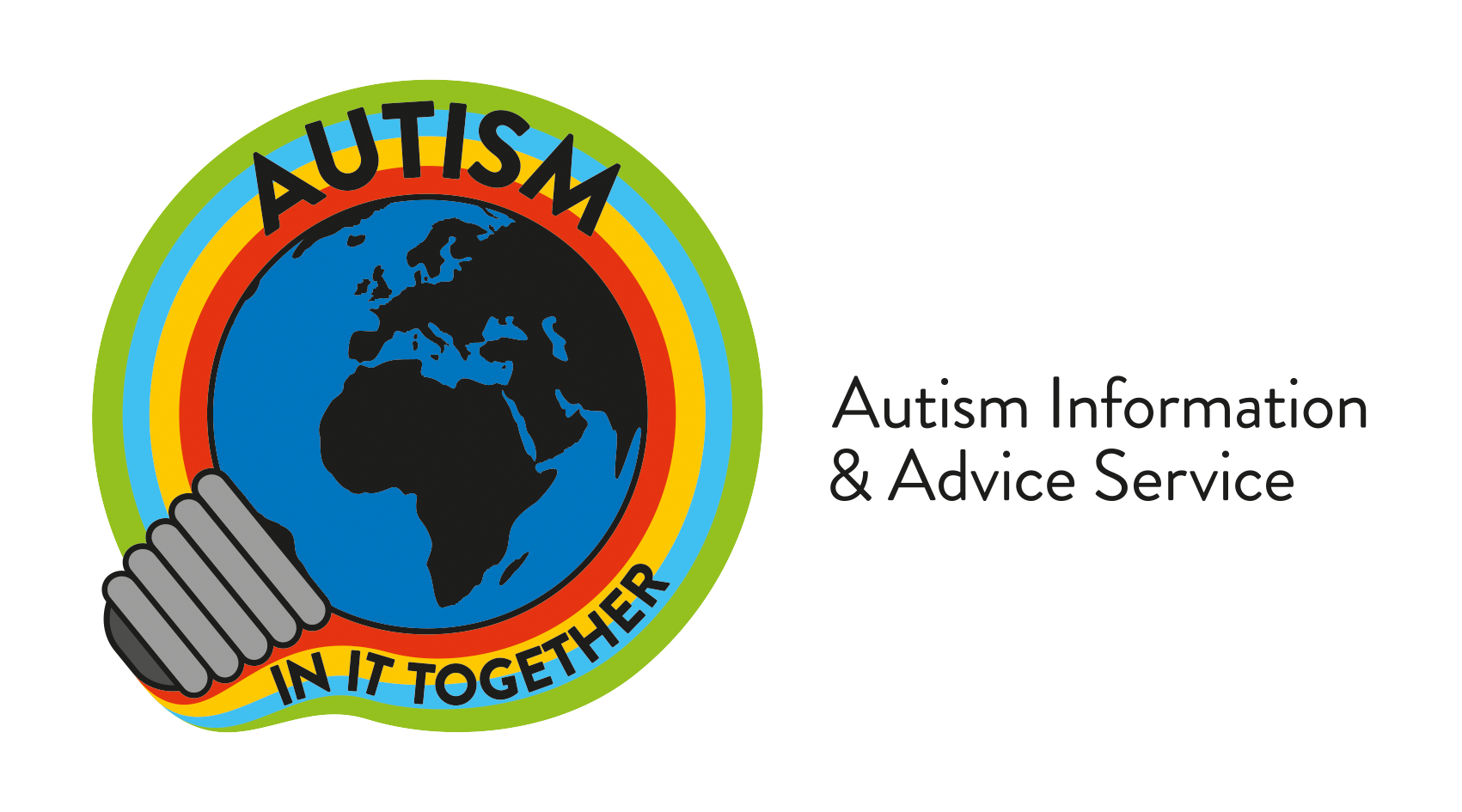آٹزم کیا ہے؟
آٹزم - یا آٹزم سپیکٹرم کنڈیشن (ASC) - ایک اصطلاح ہے جسے بیان کرنے کے لئے استعمال ہوتا ہے ایک پیچیدہ نیورو ڈویلپمنٹ حالت یہ اس بات پر اثر انداز ہوتا ہے کہ کس طرح ایک شخص اپنے ارد گرد کی دنیا کا تجربہ اور سمجھتا ہے۔ آٹسٹک ہونے کا مطلب یہ نہیں ہے کہ آپ کو کوئی بیماری یا بیماری ہے۔ اس کا مطلب ہے کہ آپ کا دماغ دوسرے لوگوں سے مختلف طریقے سے کام کرتا ہے۔
آٹزم ایک ایسی چیز ہے جس کے ساتھ آپ پیدا ہوئے ہیں۔ آٹزم کی کچھ علامات اس وقت محسوس کی جا سکتی ہیں جب آپ بہت چھوٹے ہوتے ہیں یا جب تک آپ بڑے نہیں ہوتے۔ اگر آپ آٹسٹک ہیں، تو آپ پوری زندگی آٹسٹک ہیں۔ آٹزم کوئی طبی حالت نہیں ہے جس میں علاج یا علاج ہو۔ کچھ آٹسٹک افراد کو کچھ چیزوں میں مزید مدد اور مدد کی ضرورت ہو سکتی ہے۔
آٹسٹک افراد کے پاس سیکھنے، حرکت کرنے، یا اپنے ارد گرد کیا ہو رہا ہے اس پر توجہ دینے کا طریقہ بھی مختلف ہو سکتا ہے۔ اس حالت کی وضاحت کے لئے ASC صرف ایک اصطلاح ہے۔
اسے Asperger's (بنیادی طور پر اس شخص کی زبان کی مہارت سے آٹزم سے مختلف)، آٹزم، آٹزم اسپیکٹرم ڈس آرڈر (ASD)، کلاسیکی آٹزم، ہائی فنکشننگ آٹزم، کینر آٹزم، پیتھولوجیکل ڈیمانڈ ایوائیڈنس (PDA)، اور پراسیو ڈیولپمنٹ ڈس آرڈر (PDD) بھی کہا جاتا ہے۔
یہ مختلف اصطلاحات لوگوں کے مختلف گروہوں کی طرف سے استعمال کی جاتی ہیں، ان کی تشخیص کے ایجنڈے، تشخیص کے لیے استعمال ہونے والی ٹول کٹس کے ساتھ ساتھ تشخیص سے گزرنے والے شخص کی بنیادی خصوصیات پر منحصر ہے۔ UK میں، ASD سب سے زیادہ استعمال ہونے والی اصطلاح ہے، خاص طور پر طبی پیشہ ور افراد۔ یہاں آٹزم انفارمیشن اینڈ ایڈوائس سروس میں، ہم ASC (آٹزم سپیکٹرم کنڈیشن) کی اصطلاح استعمال کرنے کو ترجیح دیتے ہیں، کیونکہ یہ آٹسٹک کمیونٹی کی طرف سے عام طور پر استعمال ہوتی جا رہی ہے، کیونکہ زبان کے زیادہ مثبت معنی ہیں۔ نوٹ کرنے کی اہم بات یہ ہے کہ آٹزم کو بیان کرنے کے لیے استعمال کیے جانے والے مختلف ناموں اور وہ خصلتیں جن کا وہ حوالہ دیتے ہیں ان طریقوں کی وسیع صف کی عکاسی کرتے ہیں جو آٹزم کا تجربہ کرتے ہیں۔
چونکہ آٹزم ایک ایسی حالت ہے جو اس بات پر اثر انداز ہوتی ہے کہ ایک شخص اپنے اردگرد کی دنیا کو کیسے دیکھتا ہے، اس لیے روزمرہ کی زندگی کے بہت سے پہلو ایک آٹسٹک فرد کے لیے بہت زیادہ مشکل ہو سکتے ہیں۔ سرگرمیاں جو اعصابی (وہ لفظ جو ان لوگوں کو بیان کرنے کے لیے استعمال کیا جاتا ہے جن کو آٹزم نہیں ہے) افراد اکثر اس کو قدر کی نگاہ سے دیکھتے ہیں، درحقیقت آٹسٹک شخص کے لیے بہت زیادہ ہو سکتا ہے۔ مثال کے طور پر، سپر مارکیٹ میں خریداری کرنا، سنیما جانا، نوکری کے انٹرویو میں جانا، یا رات کو باہر جانا۔ ان تمام سرگرمیوں میں غیر متوقع حالات کی ایک سیریز کو نیویگیٹ کرنا، بہت سے مختلف لوگوں کے ساتھ بات چیت کرنا، اور مختلف قسم کے مسابقتی حسی تجربات کا مقابلہ کرنا شامل ہے۔ جب ہم اس پر غور کرتے ہیں، تو یہ سمجھنا آسان ہوتا ہے کہ آٹسٹک افراد کیوں اکثر سماجی دنیا کو زبردست اور نمایاں طور پر بے چینی پیدا کرنے والی قرار دیتے ہیں۔

اس وجہ سے ایک آٹسٹک فرد کو درج ذیل چیلنج ہو سکتا ہے:
- بات چیت اور دوسروں کے ساتھ بات چیت - خاص طور پر اجنبی
- طنز ، استعارے یا تجریدی خیالات کو سمجھنا
- مسابقتی حسی تجربات کو مربوط کرنا - جس میں ٹچ ، شور ، بو اور روشنی اور رنگ شامل ہیں
- پروسیسنگ اور ان کے ارد گرد کیا ہو رہا ہے کو سمجھنا
- معمول کی تبدیلی یا غیر متوقع صورتحال کا مقابلہ کرنا
- دوسروں کے جذبات کو سمجھنا اور اس کا جواب دینا
ایک آٹسٹک شخص کے دماغ کے کام کرنے کے انوکھے طریقے کی وجہ سے، وہ درج ذیل خصوصیات کو بھی ظاہر کر سکتے ہیں، جنہیں دوسرے لوگوں کو سمجھنا مشکل ہو سکتا ہے:
- کسی خاص عنوان یا مضمون میں غیر معمولی مضبوط دلچسپی
- بار بار اعمال یا سلوک
- غیر معمولی جذباتی ردعمل یا اظہار
- مخصوص حسی محرکات یا کسی چیز کی انتہائی ناپسندیدگی پر ردعمل کے تحت یا اس سے زیادہ
- پابندی سے کھانے کی عادات
- سخت روٹین یا عادت مندانہ سلوک کی ترقی کی ضرورت ہے
اس لیے یہ دیکھنا آسان ہے کہ ایک آٹسٹک شخص دوسروں سے 'مختلف' کیوں محسوس کر سکتا ہے اور کیوں اسے سماجی دنیا اور غیر آٹسٹک افراد کے ساتھ تعلقات استوار کرنا مایوس کن محسوس ہو سکتا ہے۔
بہت سے چیلنجز جن کا ایک آٹسٹک فرد کو سامنا ہو سکتا ہے اور آٹزم کی عام خصوصیات کو اکثر تین مخصوص زمروں میں تقسیم کیا جاتا ہے:
- معاشرتی تفہیم اور رشتوں کی خرابی
- مواصلات اور تعامل کی ایک خرابی
- خیالی سوچ کی خرابی اور خیالات اور طرز عمل میں عدم استحکام
تاہم، یہ جاننا ضروری ہے کہ تمام آٹسٹک لوگ اپنے آٹزم کا تجربہ مختلف طریقے سے کرتے ہیں۔ آٹزم کے بارے میں سوچتے وقت، یہ یاد رکھنا مددگار ہوتا ہے کہ ہر ایک کا آٹزم مختلف ہوتا ہے – اسی لیے اسے سپیکٹرم کی حالت کہا جاتا ہے۔
فی الحال یہ سمجھ میں نہیں آیا کہ آٹزم کی وجہ کیا ہے اور آٹزم کی نشوونما کیسے اور کیوں ہوتی ہے اس کو بہتر طور پر سمجھنے کے لیے بہت ساری تحقیق کی جا رہی ہے۔ آٹزم کے بارے میں ایک چیز جو ہم یقینی طور پر جانتے ہیں وہ یہ ہے کہ یہ کسی شخص کی پرورش، اس کے والدین یا ان کے معاشرتی حالات کی وجہ سے نہیں ہوتا ہے اور اس میں ان کی اپنی کوئی غلطی نہیں ہے کہ وہ آٹزم کا شکار ہیں۔ آٹزم کا کوئی 'علاج' نہیں ہے (اور بہت سے لوگ بحث کریں گے، کسی کی ضرورت نہیں)۔ اس کے بجائے، آٹزم کے شکار افراد اپنے ارد گرد کی سماجی دنیا کو بہتر طریقے سے منظم کرنے کے لیے مقابلہ کرنے کی حکمت عملی تیار کرتے ہیں۔ مثال کے طور پر، مقابلہ کرنے کی عام حکمت عملیوں میں شامل ہیں:
- ہفتہ وار معمول کو تیار کرنا - مثال کے طور پر ، پیر کی رات کھانے کی خریداری کی رات ہے ، منگل کی رات فیملی کی رات آرہی ہے ، وغیرہ
- بصری معاونت کی تشکیل - جیسے فہرستیں یا نظام الاوقات بنانا یا کسی ایسی جگہ کا نقشہ کھینچنا جہاں وہ جانا ہے
- دشوار گزار بیانات یا منصوبوں کا استعمال کرتے ہوئے - جیسے کہ 'پہلے میں ایکس کروں گا ، پھر میں Y کروں گا'۔
- حسی امدادی سامان لے جانے والا۔ جیسے رنگت والے عینک یا کان کے محافظوں کے ساتھ شیشے
- کردار ادا کرنا یا نئے تجربات کے لئے مشق کرنا - جیسے کسی دوست کے ساتھ نوکری کے انٹرویو کی تیاری کرنا
- روزمرہ کی سرگرمیوں کے دباؤ کو ایک مخصوص مفادات کے لطف کے ساتھ توازن بنانا - لہذا ان کی شام کو اپنی پسند کی دلچسپی کے بارے میں پڑھنے کے لئے وقف کرنا
- باقاعدہ وقفے لینا
- ان کی ضروریات کے بارے میں کھلا رہنا اور مدد کی درخواست کرنا
آخر میں، یہ نوٹ کرنا ضروری ہے کہ مردوں اور عورتوں میں آٹزم کس طرح مختلف ہے اور یہ کہ تاریخی طور پر، تحقیق نے دعوی کیا کہ صرف مرد ہی آٹسٹک ہوسکتے ہیں۔ اس کے بعد سے یہ غلط ثابت ہوا ہے۔ تاہم، اس کے نتیجے میں، نہ صرف آٹزم کے بارے میں عام فہم مردانہ مرکوز تعصب کے ساتھ تیار ہوا ہے، بلکہ اس کا مطلب یہ بھی ہے کہ بہت سی لڑکیاں اور خواتین تشخیص کی ضرورت سے محروم رہ گئی ہیں۔ موجودہ تحقیق اب اس تعصب کو درست کرنے اور بہتر طور پر سمجھنے کے لیے کی جا رہی ہے کہ لڑکیوں اور خواتین کو آٹزم کا سامنا کیسے ہوتا ہے۔
.
اگر آپ آٹزم کے بارے میں مزید جاننا چاہتے ہیں اور آٹسٹک افراد کو کس طرح سپورٹ کرنا چاہتے ہیں، تو آپ اس کو تلاش کرنا چاہیں گے۔ بیداری بڑھانے اور تربیتی پیکجز ہم پیشکش

